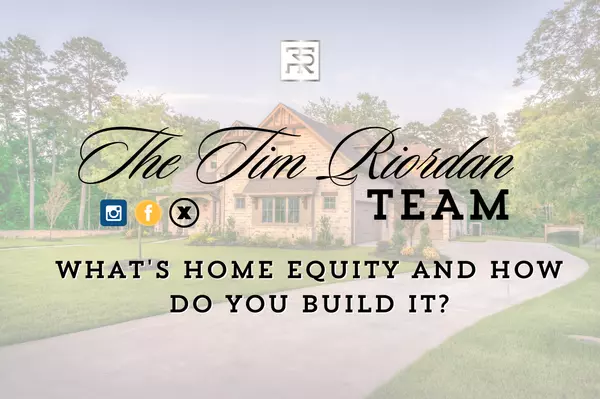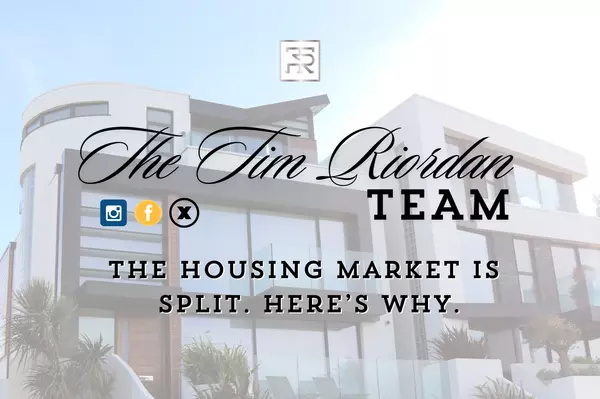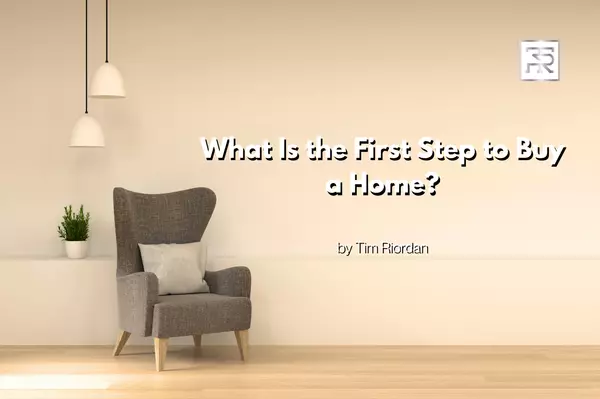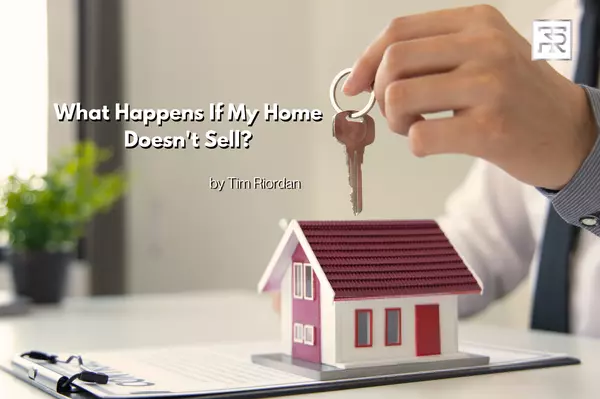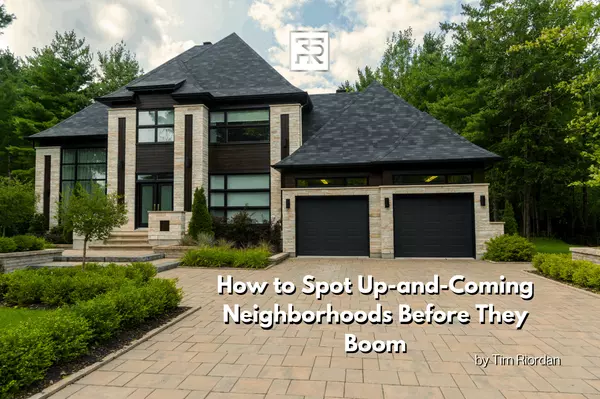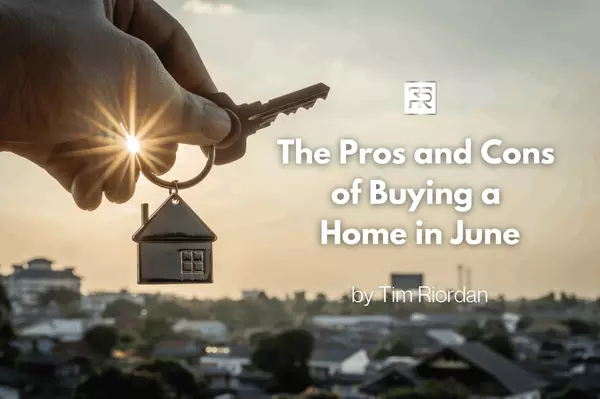
The Pros and Cons of Buying a Home in June
Buying a home is a significant milestone filled with excitement and anticipation. The timing of this important purchase can impact various aspects of the process, from the availability of homes to the price you might pay. June is a popular month for homebuyers, but it comes with its own set of advantages and drawbacks. Let's delve into the pros and cons of buying a home in June to help you decide if now is the right time for you. The Pros of Buying a Home in June 1. Increased Inventory June is part of the traditional spring and early summer home-buying season, which means more homes are listed for sale during this time. Sellers often aim to move in the summer to coincide with the end of the school year, resulting in a broader selection of homes. This increased inventory gives buyers more options to find a home that meets their specific needs and preferences. 2. Better Weather for House Hunting The pleasant weather in June makes it an ideal time for house hunting. You can explore neighborhoods, attend open houses, and inspect properties without the challenges posed by winter snow or spring rain. Good weather also allows you to better assess the condition of the exterior of the home, the landscaping, and the overall curb appeal. 3. Longer Days June offers the advantage of longer daylight hours, giving you more time after work to visit properties. This can be particularly beneficial if you have a busy schedule, as it allows you to fit in more house viewings in a single day without feeling rushed. 4. Competitive Mortgage Rates Historically, mortgage rates have been favorable in June. While rates fluctuate based on the broader economic climate, June often sees competitive rates as lenders aim to attract the surge of buyers in the market. Locking in a lower interest rate can save you a significant amount of money over the life of your loan. 5. School Year Transition For households with children, moving in June means settling into a new home before the next school year begins. This transition period can ease the stress of moving, giving kids time to adjust to their new surroundings and making it easier to enroll them in their new schools. 6. Seasonal Promotions Many moving companies and home improvement stores offer promotions and discounts in June to attract the influx of buyers and movers. Taking advantage of these deals can help reduce the overall cost of moving and setting up your new home. The Cons of Buying a Home in June 1. Higher Competition The increased number of buyers in June means more competition for desirable properties. This heightened demand can lead to bidding wars, driving up the price of homes. Buyers may need to act quickly and be prepared to offer above the asking price to secure their desired home. 2. Potential for Overpricing With so many buyers in the market, some sellers may take advantage of the demand and list their homes at higher prices. This potential overpricing means you might pay a premium compared to other times of the year. It's essential to work with a knowledgeable real estate agent who can help you identify fair market values and negotiate effectively. 3. Faster Market Pace The fast pace of the June market can be overwhelming for some buyers. Homes may receive multiple offers within days of listing, leaving little time for thorough decision-making. This urgency can lead to rushed choices and potential regrets if you don't take the time to consider all factors. 4. Moving Logistics While June is a popular moving month, it also means that moving companies are in high demand. Booking a reliable mover may require advance planning, and prices for moving services might be higher due to the increased demand. Additionally, you may face challenges in scheduling convenient moving dates. 5. Limited Room for Negotiation Sellers in a hot June market often receive multiple offers, which can limit your ability to negotiate on price and terms. In a competitive environment, sellers are less likely to make concessions, and you might have to waive certain contingencies to make your offer more attractive. Tips for Buying a Home in June If you decide that June is the right time for you to buy a home, here are some tips to navigate the competitive market: Get Pre-Approved: Obtain mortgage pre-approval before you start house hunting. This shows sellers that you are a serious buyer and gives you a clear budget. Work with an Experienced Agent: Partner with a real estate agent who has extensive knowledge of the local market. They can help you identify good deals and navigate bidding wars. Be Prepared to Act Quickly: Homes in June can sell fast. Be ready to make swift decisions, but ensure you've done your research and are comfortable with your choice. Prioritize Your Must-Haves: Know your non-negotiables versus what you can compromise on. This clarity will help you make faster decisions without second-guessing. Have a Competitive Offer Strategy: Be prepared to offer a competitive price, and consider other incentives such as flexible closing dates or a larger earnest money deposit to make your offer stand out. In conclusion... Buying a home in June has its unique set of pros and cons. The increased inventory and favorable weather make it an attractive time for many buyers, but the heightened competition and potential for higher prices require careful consideration. By understanding these dynamics and preparing accordingly, you can navigate the June housing market successfully and find the home that best suits your needs. Remember, the key to a successful home purchase is thorough preparation and the support of an experienced real estate professional. Happy house hunting!
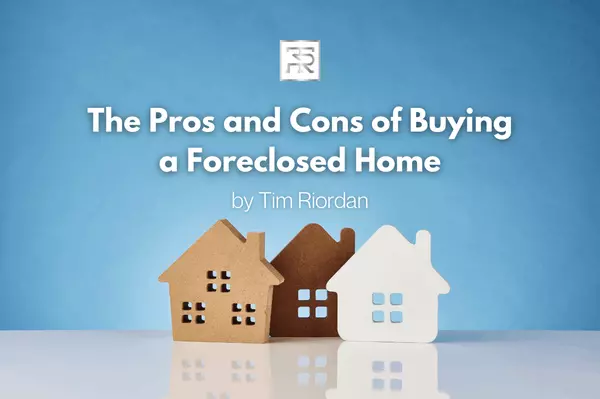
The Pros and Cons of Buying a Foreclosed Home
One way to look at the purchase of a foreclosed home is that one person's misfortune is another's opportunity, and in a dog-eat-dog economy, that's a common viewpoint although the reality is, of course, always more complex. At any rate, as the potential purchaser of a foreclosed home, you have to be aware of what you're getting into because purchasing a foreclosed property isn't the same as a conventional home purchase. You may have fallen in love with the property at first sight, but the seller a bank or mortgage company is typically a disinterested third party and won't share your enthusiasm. A foreclosure purchase is usually "as is," and while some banks take efforts to make the house presentable, they won't do major repairs to plumbing, electrical, or HVAC systems, and you'll have to do those before you can move in. The possible need for extensive repairs is just one of the hazards of a foreclosure property purchase, but there are obvious benefits as well, not the least of which being the acquisition of your dream home for pennies on the dollar. Foreclosures are attractive to investors too and probably more so because they can be fixed up and sold for much higher prices. With the benefits of potentially huge cash savings, though, comes considerable risk. What's Involved In a Foreclosure? The foreclosure process can be a long one, often lasting over a year depending on how quickly the bank acts. During this time and often even after the foreclosure is official, the homeowner may continue to occupy the property. The foreclosure process has six distinct phases: The homeowner misses a mortgage payment. This is known as a default. The bank issues a notice of default. In some states, they will tack this notice on the front door or some other prominent place on the building. The earliest this can occur is 90 days after default, but many lenders wait until the homeowner has missed two or more mortgage payments. The notice of default is often followed by a 90-day reinstatement period during which the homeowner has a chance to correct the default. The total time elapsed so far is six to eight months. The bank publishes a notice of trustee's sale. The ad will typically run for three weeks in a local newspaper, and it will announce a public auction. A foreclosure auction is held. If there's a successful bidder, that person becomes the new owner. If the home doesn't sell at auction, the bank assumes ownership, and the home becomes an REO (or real estate owned) property. During the REO period, the original owner may be allowed to stay in the home. The bank sells the property. They will send an eviction notice to the occupants of the property. They must vacate the premises on receipt of the notice or soon afterward. The REO period can stretch into a year or two or more depending on the housing market and the amount of the unpaid loan. The bank's primary interest is to recoup its losses, and if the market is sluggish and the loan balance is large, it may elect to hold the property until conditions improve. How to Find a Foreclosed Home Some lucky people find the home of their dreams by scanning the classifieds, going to an auction, and paying for the home in cash, but most people do it by working with a real estate agent to purchase an REO property. A good agent will have a complete listing of all the REO properties in the area, but if you're in the early stages of the search and don't yet have an agent, you can find leads on Zillow, which lists foreclosures and pre-foreclosures (these are foreclosures still in the default phase). In addition, the Department of Housing and Urban Development also maintains a searchable database of foreclosed homes, as do Fannie Mae with its HomePath program and Freddie Mac with HomeSteps. How to Buy a Foreclosed Home If you know of a distressed property, you may be able to purchase it during the default or pre-foreclosure phase by making an offer to the owner. An offer below the market value of the property but at least large enough to cover the unpaid part of the mortgage may be accepted. This is known as a short sale, and it must be approved by the lender, who is often motivated to avoid the costly and time-consuming foreclosure process. If the bank won't approve a short sale, the next opportunity to purchase that foreclosed home is at the foreclosure auction. The problem with this strategy is that cash offers are usually required at auctions, and when they aren't, you must have a certified check for a predetermined amount (usually $5,000) in hand and loan preapproval just to make a bid. Large investors with deep pockets are the ones most likely to have this type of cash on hand, and that's who you'll be bidding against, especially if it's a valuable property. Another problem is that homes are sold in "as is" condition at auction, and you can't inspect the home if it's still occupied. A third problem is that the title may not be clear, and the buyer has to clear up any problems with it, such as outstanding liens. Most people who buy foreclosed homes do it after auction when the bank has repossessed the property and assigned it to an REO real estate agent. This is safer than buying it at auction because the bank does the work of clearing the title and evicting the current occupants. An REO property is usually sold "as is," but the bank usually provides the opportunity to conduct a home inspection. To purchase a foreclosed home this way, it's best to hire a real estate agent who has experience dealing with REO real estate agents and foreclosed homes. Reasons to Buy a Foreclosed Home The first and foremost reason to buy a foreclosed home is to save money. Foreclosed homes often sell for less than they are worth, and you could end up saving as much as 15 percent of the price you would pay if you were to buy the house on the open market. Things don't always work out that way, but they might, and the possibility is a big incentive, especially for first-time homebuyers seeking to move into a neighborhood they couldn't otherwise afford. If you're an investor, purchasing a house for less than it's worth also means you may be able to do the necessary repairs if they aren't extensive and resell the house for a handsome profit. You'll probably face less competition from other potential homeowners when making an offer on a foreclosed home than you would when purchasing from a private seller. Forty-eight percent of homebuyers are looking for a turnkey home that they can immediately occupy, and few foreclosed homes meet that standard. You could, on the other hand, face plenty of competition from investors if the property is a good buy, but if you love the property and are interested in more than making a profit, you'll be willing to bid higher than an investor. Reasons Not to Buy a Foreclosed Home You buy the house "as is" The house could be in good shape, slightly run down or severely damaged, and you aren't always allowed to have a home inspection. The previous owner is often understandably upset after going through a foreclosure and may express the upset in destructive ways. Stories exist of people putting cement in the drains prior to eviction, but even if nothing like this happens, it's a sure bet that the previous owner will neglect major repair issues. You may have to wait to move in When a home is purchased at auction, it's the successful bidder's responsibility to evict the current occupants, and that can be difficult — and it's time-consuming. If an REO property has been standing empty for several years, it may be occupied by squatters who can legally have the same rights as tenants in certain circumstances. Besides the delay caused by an eviction (which can be several months), you'll also face one from the bank, which can often take its time to process the sale. You might not ever move in You could be walking to the real estate agent's office to sign the closing papers when the previous owner suddenly finds the money to pay off the loan, and the sale is off. Some states even give homeowners the right to redeem their property after a foreclosure sale, so you can still lose the house even if the sale closes. It might be harder to get a loan Because of the potential for damage, lenders consider foreclosed homes to be high risk, so you may need a higher credit score and/or down payment to get a loan. If you have poor credit but you qualify for a Federal Housing Administration (FHA) loan, you might still be out of luck because some foreclosed properties are ineligible for FHA loans. You're competing with investors When you're searching the conventional home market, the competition is mostly people like you who just want to find a place to live. The competition you face when searching for foreclosed properties is mostly investors looking for a turnaround. They will drive up the bidding, and you may end up paying almost as much as you would for a home that isn't under foreclosure. Add on renovations and the house could cost even more than that. The Bottom Line If you purchase a foreclosed house at auction, you'll probably pay less for it than you would at other times in the foreclosure process. But because you can't do an inspection, purchasing at auction is risky. There are two safer alternatives. One is to purchase a home in the default or pre-foreclosure phase, when the homeowner is still doing the negotiations and is motivated to sell. The other is to purchase an REO property through a real estate agent. These alternatives are safer because: You take possession of an empty house (assuming the absence of squatters). The house is more likely to be in a reasonable state of repair. You can finance the property with a conventional mortgage. The deed will be clear of liens, back taxes and other encumberments.
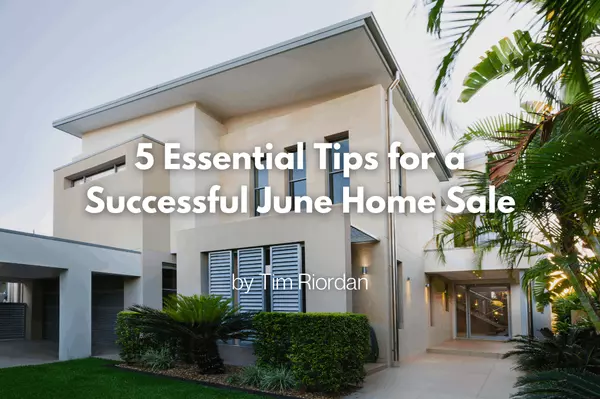
5 Essential Tips for a Successful June Home Sale
June is a prime month for selling a home as families are looking to settle into a new home before the next school year, thereby the market is typically bustling with activity. However, successfully selling a home in the Bahamas in June requires more than just good timing. Here are five essential tips to help you make the most of the season and achieve a smooth, profitable sale. 1. Maximize Curb Appeal First impressions are crucial, and nothing sets the tone for a potential buyer like excellent curb appeal. Iune in the tropics is the start of the rainy season, so use this to your advantage. Tips for Boosting Curb Appeal: Landscaping: Ensure your lawn is well-manicured, landscape beds are weeded, and shrubs are trimmed. Consider adding some new mulch to spruce up your planting beds and help keep those weeds down. Exterior Maintenance: Power wash your concrete driveway, and walkways. Apply a fresh coat of paint on the front door and shutters can also make a significant impact. Outdoor Lighting: Install or upgrade outdoor lighting to highlight key features of your home and ensure it looks inviting even after sunset. Decorative Touches: Add tasteful decorations like a new doormat or even a cozy seating area on your porch or patio. 2. Stage to Sell Staging your home can make a world of difference in how potential buyers perceive the space. It’s about creating an inviting atmosphere where buyers can envision themselves living. How can you make that happen? Effective Staging Strategies: Declutter and Depersonalize: Remove personal items and excess furniture to create a sense of spaciousness. A clean, clutter-free home allows buyers to focus on the property itself. Highlight Key Areas: Pay special attention to staging the living room, kitchen, and master bedroom as these are often the deciding factors for buyers. Neutral Colors: If possible, paint the walls in neutral tones to appeal to a broader audience. This makes it easier for buyers to imagine how their own décor will fit. Fresh Flowers and Scents: Placing fresh flowers and ensuring the home smells pleasant can enhance the welcoming atmosphere. 3. Price it right It’s critical to set the right price from the outset. Overpricing can lead to your home sitting on the market longer, while underpricing can mean missing out on potential profit. Pricing Tips: Market Analysis: Work with a us to conduct a comparative market analysis (CMA) to understand what similar homes in your area have sold for recently. Strategic Pricing: Consider pricing your home slightly below a key price threshold to attract more interest. For example, pricing at $499,000 instead of $505,000 can open your listing to a larger audience. Be Competitive: Take into account the current market conditions. In a seller's market, you might have more flexibility, but in a buyer's market, you’ll need to be more competitive. 4. Professional Photography In today’s digital age, the first showing usually happens online. High-quality photos and virtual tours can make your listing stand out, and will entice more buyers to come see the place in person. Photography Tips: Hire a Professional Photographer: They know how to capture your home in the best light, literally and figuratively. High-resolution images can significantly boost your online presence. Staging for Photos: Ensure your home is impeccably clean and staged for the photo shoot. Highlight the best features of each room and create a cohesive look. Virtual Tours: Offering a 3D virtual tour allows potential buyers to explore your home from the comfort of theirs. This is particularly appealing to out-of-town buyers. 5. Market Effectively A robust marketing strategy is key to attracting the right buyers. Leveraging both traditional and digital marketing channels can maximize your reach. What’s the right way to market your home? Marketing Strategies: Online Listings: Ensure your home is listed on a major real estate agency website and who is a member of the BREA MLS to give your property broader exposure. Social Media: Ensure your agency uses social media platforms like Facebook, Instagram, and Twitter to reach a broader audience, and who uses targeted ads to reach potential buyers in your area. Open Houses: Your agency should also have an open house to give other agents and their potential buyers a chance to view your home in person. Make sure your home is clean, staged, and welcoming. Networking: Your agency should also have an established network to market your home to as friends, family, and colleagues may know of someone who might be interested in buying. Hiring the Right Real Estate Agent Those tips might seem like a lot to handle but luckily, hiring the right real estate agent will accomplish all of this for you. A professional agent brings invaluable experience, market knowledge, and negotiation skills to the table, ensuring you get the best possible outcome for your home sale. Your agent will make sure you nail tips 1 through 5 in addition to reducing your stress and selling your home for top dollar. Benefits of Hiring an Agent: Expert Market Insight: An experienced agent understands the local market trends and can provide a realistic assessment of your home’s value, helping you set a competitive price. Effective Marketing: Agents have access to extensive marketing resources and networks. They will create a comprehensive marketing plan that can include professional photography, and will include online listings, social media promotion, and open houses. Negotiation Skills: A skilled agent will handle negotiations on your behalf, ensuring you get the best deal while avoiding potential pitfalls. Time and Stress Management: Selling a home involves numerous tasks, from paperwork to coordinating showings. An Agent can manage these details, allowing you to focus on your move and other priorities. Professional Network: Agents have connections with other professionals such as inspectors, contractors, and loan officers, which can be beneficial throughout the selling process. Final Thoughts Selling a home in June can be incredibly rewarding, but it requires careful planning and execution. By focusing on curb appeal, effective staging, accurate pricing and professional photography. you can increase your chances of a successful sale. Remember, the goal is to make your home as attractive as possible to potential buyers, helping them envision their future in your space. With these tips in mind, you’ll be well on your way to closing the deal and moving on to your next adventure. Happy selling!
Categories
Recent Posts
